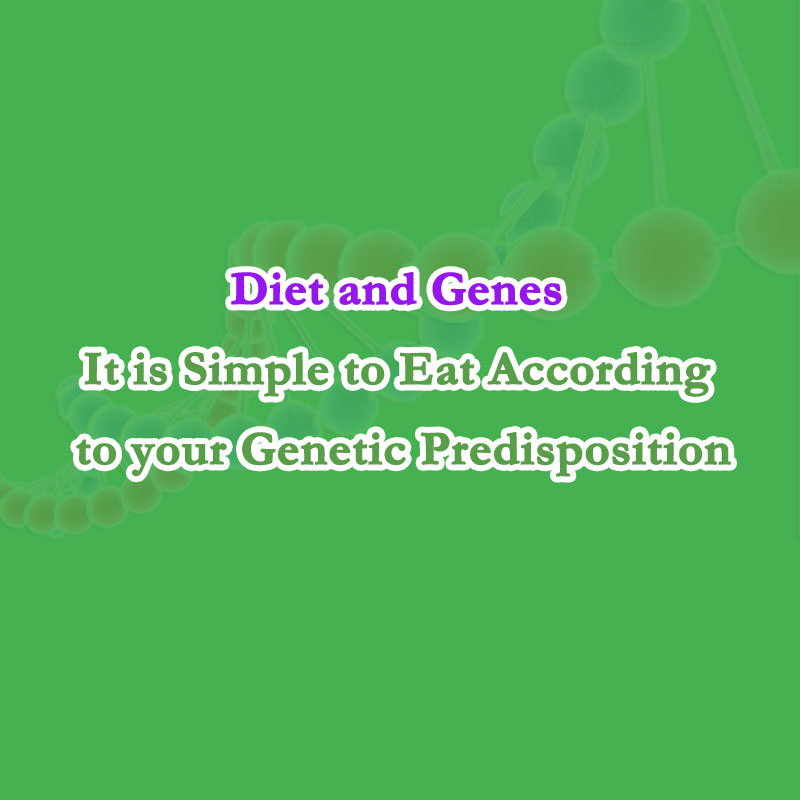Nutritional genomics studies the relationship between diet, lifestyle and genes.
Two children of the same age and height begin their meal together. One finishes their meal and needs no more, while the other asks for a second portion.Eventually the second will become overweight while the first one will not. Two men of the same age follow the same diet: high in salt and saturated fat, with decreased consumption of fruits and vegetables. One of them develops high blood pressure, high blood cholesterol and eventually atherosclerosis, while the other does not develop chronic health problems. Two women of the same age and the same weight aim to lose weight and follow the same diet. One easily achieves her goal while the other not, despite the fact that she strictly sticks to the diet. Why do people who have similar eating habits and follow a similar lifestyle experience different results? The answer to this question comes from the science of nutritional genomics, which has taken important steps in the last 7 years, leading the way for a personalized diet based on our genetic profile. Indeed, recent studies in authoritative scientific journals show that people, who followed an individualized diet based on their genetic profile, achieved their goals more quickly.
Genetic Profile and Your Diet
Knowing one’s genetic profile today can draw a lot of information and significantly modify his lifestyle to have a better quality of life. For example, he can tell if he or she is predisposed to obesity (even from childhood), for diabetes, cardiovascular, hypertension, osteoporosis, metabolic syndrome, thrombosis (also known as thrombophilia), sensitivity to injuries or exercise (strength or endurance) would be better suited to its genetic profile. Through the genetic profile, each of us can know whether he or she is genetically predisposed to developing intolerance in a range of foods such as milk or gluten, although how much it should consume, and it seems that some people with a very specific genetic background are at risk from heart attack if they consume coffee while others can freely enjoy its antioxidant properties. A number of thoroughly investigated genes have been found to affect mood and to increase the possibility of weight gain even after bariatric surgery (obesity surgery).
Nutritional factors have played a certain role in human evolution by selecting for certain genotypes. For instance long periods of starvation may have favored genotypes predisposing to hyperlipidemia and diabetes by allowing easier mobilization of lipids and glucose. This provided a slightly better chance of survival and reproduction. A similar reasoning applies to genotypes predisposing to obesity. Such a hypothesis would explain the relatively high frequency of these traits.
Know Your Genotype
This is why patients who consider undergoing bariatric surgery should be aware of their genetic profile in order to make better decisions in cooperation with their physician and nutritionist. A recent major study (POUNDS LOST TRIAL) conducted by the NIH (National Institutes of Health) and published in leading scientific journals shows that the distribution of macronutrients in diet should be differentiated according to every person’s genetic profile. Genetic information today, can provide the nutritionist valuable information about the patient’s carbohydrate metabolism or whether the person is prone to emotional eating and also their taste preferences. The answers to these questions will be provided through the study of large number of genes, since most of the above-mentioned situations are not single gene-based but mostly polygenic (many traits involved).
Over the past two years, the technological evolution of Molecular Biology has given us the possibility of studying a very large number of genes in the same time at an affordable cost only by taking a small blood sample. Such integrated information will be used to make corrective interventions in our lifestyle in order to prevent the onset of cardiovascular disease by helping to create a personalized nutrition plan.
Learn something more: Thyroid Cancer – The results of a Biopsy, Explained
















